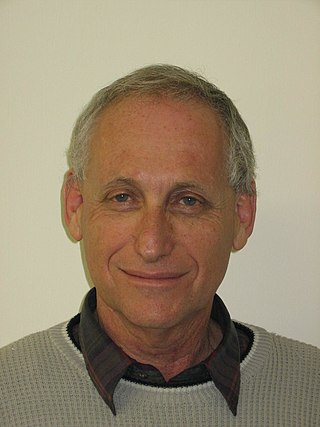
Applied psychology is the use of psychological methods and findings of scientific psychology to solve practical problems of human and animal behavior and experience. Educational and organizational psychology, business management, law, health, product design, ergonomics, behavioural psychology, psychology of motivation, psychoanalysis, neuropsychology, psychiatry and mental health are just a few of the areas that have been influenced by the application of psychological principles and scientific findings. Some of the areas of applied psychology include counseling psychology, industrial and organizational psychology, engineering psychology, occupational health psychology, legal psychology, school psychology, sports psychology, community psychology, neuropsychology, medical psychology and clinical psychology, evolutionary psychology, human factors, forensic psychology and traffic psychology. In addition, a number of specialized areas in the general area of psychology have applied branches. However, the lines between sub-branch specializations and major applied psychology categories are often mixed or in some cases blurred. For example, a human factors psychologist might use a cognitive psychology theory. This could be described as human factor psychology or as applied cognitive psychology. When applied psychology is used in the treatment of behavioral disorders there are many experimental approaches to try and treat an individual. This type of psychology can be found in many of the subbranches in other fields of psychology.

Traffic psychology is a discipline of psychology that studies the relationship between psychological processes and the behavior of road users. In general, traffic psychology aims to apply theoretical aspects of psychology in order to improve traffic mobility by helping to develop and apply crash countermeasures, as well as by guiding desired behaviors through education and the motivation of road users.

Sonification is the use of non-speech audio to convey information or perceptualize data. Auditory perception has advantages in temporal, spatial, amplitude, and frequency resolution that open possibilities as an alternative or complement to visualization techniques.
Neville A. Stanton is a British Professor of Human Factors and Ergonomics at the University of Southampton. Prof Stanton is a Chartered Engineer (C.Eng), Chartered Psychologist (C.Psychol) and Chartered Ergonomist (C.ErgHF). He has written and edited over forty books and over three hundred peer-reviewed journal papers on applications of the subject. Stanton is a Fellow of the British Psychological Society, a Fellow of The Institute of Ergonomics and Human Factors and a member of the Institution of Engineering and Technology. He has been published in academic journals including Nature. He has also helped organisations design new human-machine interfaces, such as the Adaptive Cruise Control system for Jaguar Cars.
Cognitive ergonomics is a scientific discipline that studies, evaluates, and designs tasks, jobs, products, environments and systems and how they interact with humans and their cognitive abilities. It is defined by the International Ergonomics Association as "concerned with mental processes, such as perception, memory, reasoning, and motor response, as they affect interactions among humans and other elements of a system. Cognitive ergonomics is responsible for how work is done in the mind, meaning, the quality of work is dependent on the persons understanding of situations. Situations could include the goals, means, and constraints of work. The relevant topics include mental workload, decision-making, skilled performance, human-computer interaction, human reliability, work stress and training as these may relate to human-system design." Cognitive ergonomics studies cognition in work and operational settings, in order to optimize human well-being and system performance. It is a subset of the larger field of human factors and ergonomics.
Tranquillity is the quality or state of being tranquil; that is, calm, serene, and worry-free. The word tranquillity appears in numerous texts ranging from the religious writings of Buddhism—where the term passaddhi refers to tranquillity of the body, thoughts, and consciousness on the path to enlightenment—to an assortment of policy and planning guidance documents, where interpretation of the word is typically linked to engagement with the natural environment. It is also famously used in the Preamble to the United States Constitution, which describes one of the purposes for which the document was establishing the government as to "insure domestic Tranquility".
A voice warning system is a system designed to alert the crew of an aircraft to imminent safety hazards. It is often known as a Bitchin' Betty, a slang term used by some pilots and aircrew and submariners.
Neuroergonomics is the application of neuroscience to ergonomics. Traditional ergonomic studies rely predominantly on psychological explanations to address human factors issues such as: work performance, operational safety, and workplace-related risks. Neuroergonomics, in contrast, addresses the biological substrates of ergonomic concerns, with an emphasis on the role of the human nervous system.
Listener fatigue is a phenomenon that occurs after prolonged exposure to an auditory stimulus. Symptoms include tiredness, discomfort, pain, and loss of sensitivity. Listener fatigue is not a clinically recognized state, but is a term used by many professionals. The cause for listener fatigue is still not yet fully understood it is thought to be an extension of the quantifiable psychological perception of sound. Common groups at risk of becoming victim to this phenomenon include avid listeners of music and others who listen or work with loud noise on a constant basis, such as musicians, construction workers and military personnel.
Engineering psychology, also known as Human Factors Engineering, is the science of human behavior and capability, applied to the design and operation of systems and technology. As an applied field of psychology and an interdisciplinary part of ergonomics, it aims to improve the relationships between people and machines by redesigning equipment, interactions, or the environment in which they take place. The work of an engineering psychologist is often described as making the relationship more "user-friendly."
Systems psychology is a branch of both theoretical psychology and applied psychology that studies human behaviour and experience as complex systems. It is inspired by systems theory and systems thinking, and based on the theoretical work of Roger Barker, Gregory Bateson, Humberto Maturana and others. Groups and individuals are considered as systems in homeostasis. Alternative terms here are "systemic psychology", "systems behavior", and "systems-based psychology".
Auditory fatigue is defined as a temporary loss of hearing after exposure to sound. This results in a temporary shift of the auditory threshold known as a temporary threshold shift (TTS). The damage can become permanent if sufficient recovery time is not allowed before continued sound exposure. When the hearing loss is rooted from a traumatic occurrence, it may be classified as noise-induced hearing loss, or NIHL.
Eyewitness memory is a person's episodic memory for a crime or other witnessed dramatic event. Eyewitness testimony is often relied upon in the judicial system. It can also refer to an individual's memory for a face, where they are required to remember the face of their perpetrator, for example. However, the accuracy of eyewitness memories is sometimes questioned because there are many factors that can act during encoding and retrieval of the witnessed event which may adversely affect the creation and maintenance of the memory for the event. Experts have found evidence to suggest that eyewitness memory is fallible.

Human factors and ergonomics is the application of psychological and physiological principles to the engineering and design of products, processes, and systems. Primary goals of human factors engineering are to reduce human error, increase productivity and system availability, and enhance safety, health and comfort with a specific focus on the interaction between the human and equipment.
Alarm fatigue or alert fatigue describes how busy workers become desensitized to safety alerts, and as a result ignore or fail to respond appropriately to such warnings. Alarm fatigue occurs in many fields, including construction and mining, healthcare, and the nuclear power field. Like crying wolf, such false alarms rob the critical alarms of the importance they deserve. Alarm management and policy are critical to prevent alarm fatigue.
Neville Moray was a British-born Canadian psychologist. He served as an academic and professor at the Department of Psychology of the University of Surrey, known from his 1959 research of the cocktail party effect.

Sophie Kerttu Scott is a British neuroscientist and Wellcome Trust Senior Fellow at University College London (UCL). Her research investigates the cognitive neuroscience of voices, speech and laughter particularly speech perception, speech production, vocal emotions and human communication. She also serves as director of UCL's Institute of Cognitive Neuroscience.

Daniel Gopher is a professor (Emeritus) of Cognitive psychology and Human Factors Engineering at the Faculty of Industrial Engineering and Management, Technion - Israel Institute of Technology. He held the Yigal Alon Chair for the Study of Humans at Work at the Technion. Gopher is a fellow of the Human Factors and Ergonomics Society, the Psychonomic Society and the International Ergonomics Association.
Joachim Meyer is Celia and Marcos Maus Professor for Data Sciences at the Department of Industrial Engineering at Tel-Aviv University. His work deals with human decisions in interactions with intelligent systems and he is a fellow of the Human Factors and Ergonomics Society.
Emily S. Patterson is an American ergonomist and academic. She is a professor in the Ohio State University College of Medicine.





